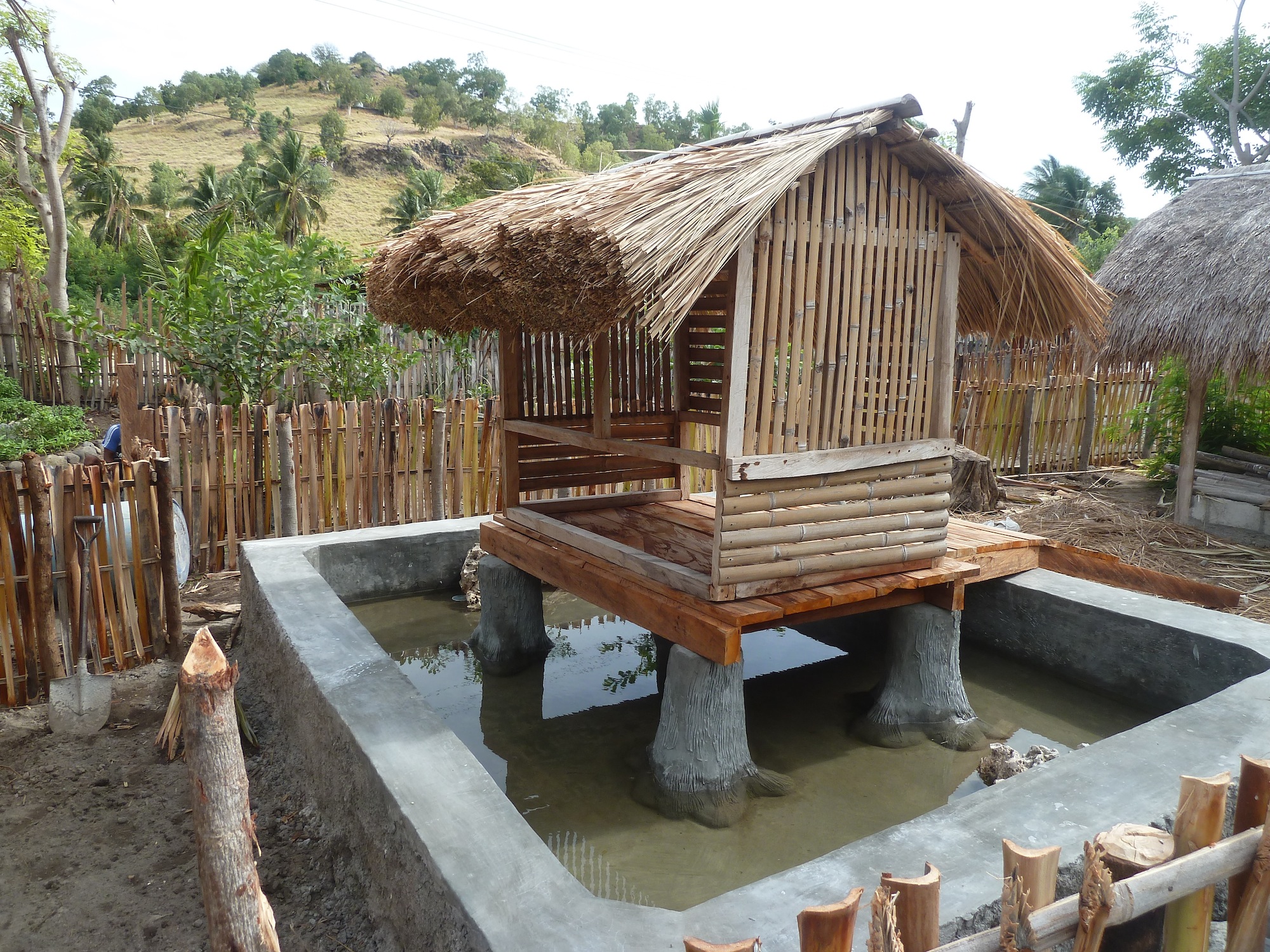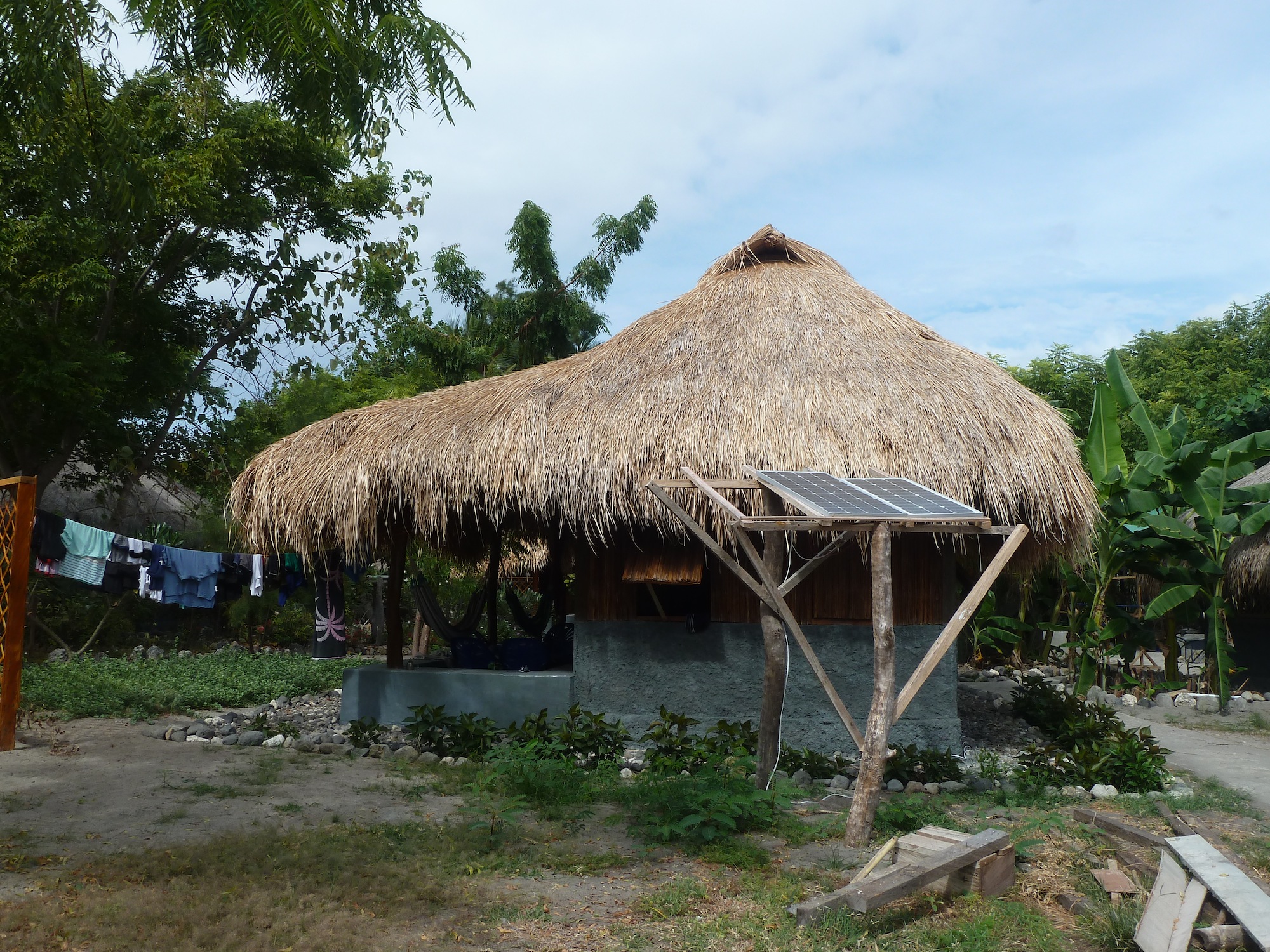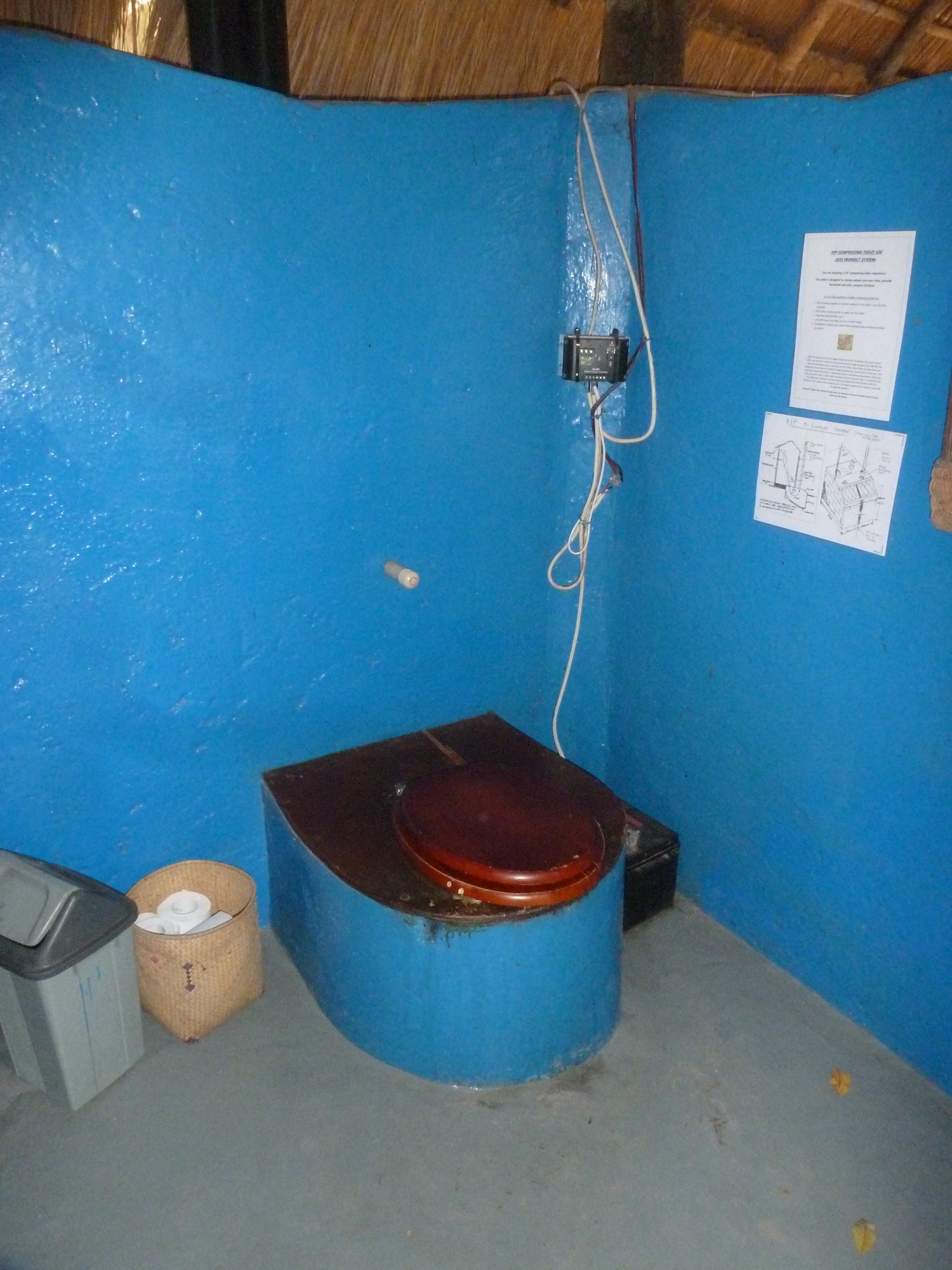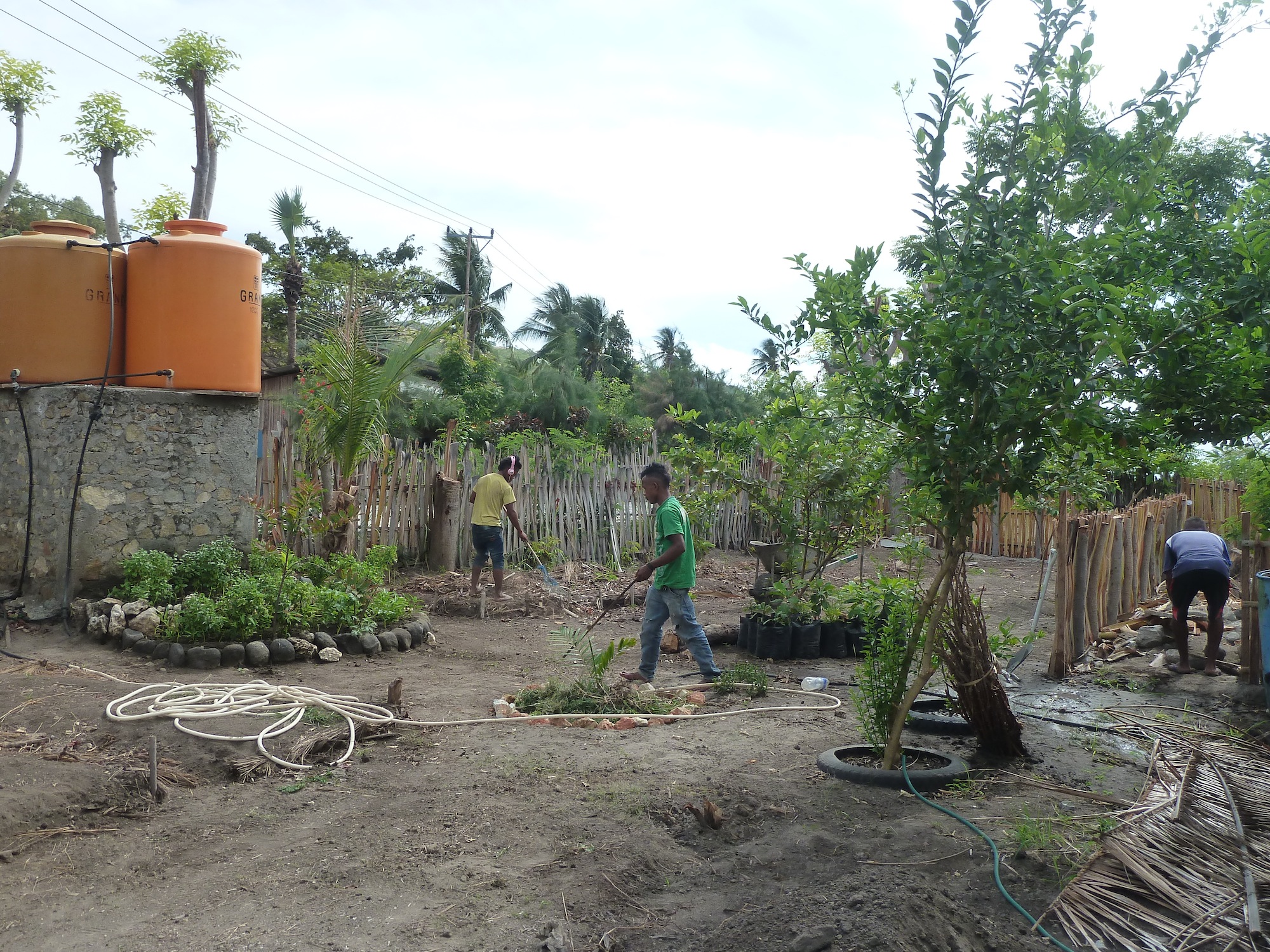This is a project located in #TimorLeste.
Related SDGs:
- #SDG1 (No poverty)
- #SDG2 (Zero hunger)
- #SDG5 (Gender equality)
- #SDG6 (Clean water and sanitation)
- #SDG8 (Decent work and economic growth)
- #SDG15 (Life on land)
Data collection methods: Field visit, interview
Updated since: August 2016
Case study
Background:
Barry’s Place is an ecolodge located on Ataúro Island, Timor Leste. The hotel is a family business, run by Barry and Lina Hinton. This permaculture-based social enterprise has been running for 12 years, and is an important connection hub for all the other social enterprises and NGO-run projects on the island.
Ataúro Island is located 35km away from Dili, the capital of Timor Leste, and is populated by approximately 10,000 inhabitants. Unemployment among the island dwellers is high, with the main work being subsistence farming and fishing. However, of recent years, there is a thriving SSE community on the island, including:
- Boneca de Ataúro, a women’s co-op which employs about 60 women, manufacturing and selling embroidered dolls, bags and educational toys
- Biajoia de Ataúro, a hearing-impaired co-op which makes and sells jewelry from local materials
- Empreza Di’ak, an NGO which works on business development in areas such as agriculture, poultry-farming, fishing, handicrafts, and tourism for the poor, particularly youth and vulnerable women
- Blue Ventures Conservation, a conservation ecotourism social enterprise, providing volunteer expeditions to generate income for local communities
Barry’s Place is an economic hub on Ataúro. Not only does it only hire local people, it also provides a marketing channel for the other SSE organisations, by giving their information in its website, its guest information book, as well as in the form of travel advice to guests at the reception. As Ataúro does not have many hotels, many tourists come through Barry’s Place when they visit the island. Besides that, Barry’s Place is the connection link between the locals and foreigners who want to implement community projects, in clarifying the needs of the locals and the expectations of the donors.
- Hearing-impaired making jewelry at Biajoia de Ataúro
- Pictures of Empreza Diak
- Women at work at the Boneca de Ataúro doll-making women’s co-operative
Philosophy/Values/Traditional knowledge
The owners of Barry’s Place have a strong commitment to ethical tourism and community development. They aim to provide assistance to the community in a way that builds on the richness and strengths of the community’s way of life, without creating a mentality of welfare or aid dependency. The permaculture philosophy adopted also forms a worldview of working with nature, rather than against nature.
Organisational model
Barry’s Place is a business owned by Barry Hinton and his family, and employs about 28 staff. On the website of Barry’s Place, it is stated that the ecolodge is a social enterprise, defined as “a revenue generating business with primary social objectives (human and environmental well-being) whose surpluses are reinvested for that purpose in the business or in the community, rather than being driven by the need to deliver profit to external shareholders and owners”.
Triple Bottomline
Social sustainability:
- Hiring local people from the island: Out of all the 28 employees of the establishment, all are local; Barry’s Place also provides them work year round, even when it is low season and there is no need for workers.
- Supporting community projects: A long list of community projects is listed in the website of Barry’s Place: the projects include linking foreign aid to local initiatives, building infrastructure, financial donations for educational and cultural activities, awareness campaigns on issues such as water and permaculture.
- Supporting women’s activities: The co-owner of Barry’s Place, Lina Hinton, participates actively in the “Feto Atauro” (women of Atauro) initiative which aims to build the capacity and potential of local Atauro women through forming Village (Suco) networks to disseminate information, facilitate training, and liaise with guest speakers and dignitaries. Barry’s Place also organises regular Zumba dance activities to promote women’s health.
Environmental sustainability:
- Eco-friendly design of hotel: The environmental sustainability of Barry’s Place lies mainly in the design of the ecolodge. Compost toilets and solar panels are installed; the chalets are also built with eco-friendly principles that ensure that they are comfortable to stay in without consuming a lot of energy. Barry’s Place also experiments with permacultural projects such as aquaculture rearing ducks and fish, as well as growing organic vegetables.
- Raising environmental awareness through leading by example: The eco-friendly building designs such as the compost toilets have been emulated by the villagers on the island.
Economic sustainability:
- Financially sustainable: Barry’s Place is financially sustainable, with good reviews from tourists who have stayed in their ecolodge. It also caters food for day-trippers and volunteer expeditions that come through the island.
- The ecolodge has also become an epicentre of economic activity, generating jobs for tuk-tuk drivers, housekeepers, builders, tour guides, fishermen, farmers, kiosk owners, bakers, etc. on the island. Visitors to the lodge also help support the local shops and co-operatives on the island.
- Structure for rearing ducks. Duck poo fall through the cracks and feed the fish underneath.
- Solar panel for every chalet
- Compost heap
- Compost toilet and shower external view
- Compost toilet
- Diagram of compost toilet design
- Workers tending to garden
Challenges
The challenges as highlighted during an interview with Barry Hinton, the owner of Barry’s Place, are as follows:
- Lack of general infrastructure: On the island, there is still a lack of general infrastructure. Waste management is done through bury and burn, and there is a lack of fresh water. Electricity by the grid is available only at certain hours.
- Low capacity in local workers: It is mentioned that the capacity of the workers is a problem as most of the locals have a lower level of education as well as no background in hospitality services. The decision to hire local also means that training has to be done from ground up.
- Lack of support by the government: The focus of the government in development is on mega projects, and this does not translate into policy directions that are beneficial for smaller hotels like Barry’s Place. Ataúro is part of the Special Zone of Social Market Economy (ZEESM) of Oecussi Ambeno and Atauro, which translates to a focus on high end transportation options like helipads and five-star hotels. The high level of red tape involved in doing business and paying taxes is also prohibitive to small businesses.
- Politicking among locals: The tight-knit nature of the Timorese society also translates to jealousy among families and businesses. Although this is the case, the fact that Barry’s family is not entirely local (Barry is Australian and his Timorese wife is from mainland Timor) sometimes work to their favour, as decisions can be made independently without having to succumb to nepotism.











